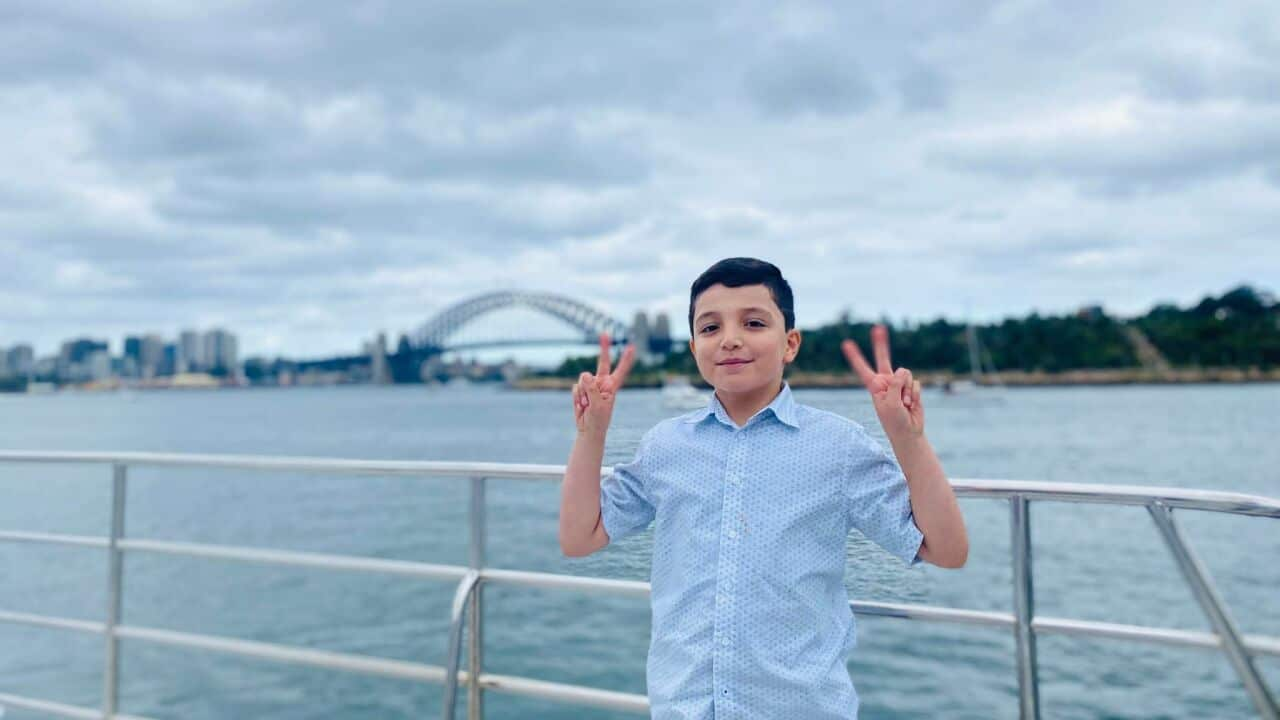Highlights
- Host International organised a large Iftar gathering in Sydney's west
- Around 100 Afghan refugees attended the event, and for many, it was their first community-wide Iftar after arriving in Australia
- The experience prompted mixed feelings among this cohort who have families left in Afghanistan
Thursday night marked a special occasion for around 100 Afghan refugees, as it was their first community-wide Iftar in their new country.
The cohort arrived in Australia following the Taliban takeover of Afghanistan in mid-2021.
Host International and National Zakat Foundation Australia organised the feast at the Afghan Community Hall in Blacktown in Sydney’s west.
Iftar is the meal enjoyed by Muslims observing Ramadan and is held each evening after dusk. It represents the breaking of the daily fast.
HOST International Community Engagement Lead Nasiba Akram said the group was pleased to have been able to share an Iftar dinner with Afghan evacuees marking their first Ramadan in Australia.
"We understand that it hasn’t been an easy adjustment for the newly resettled Afghan families to celebrate the holy month that involves adherence to traditions, so this Iftar is an initiative to provide support to the families and give them a sense of belonging," Ms Akram said.
According to a recently released report by the entitled , per capita incomes in Afghanistan had fallen by one-third since the latter part of 2021, effectively wiping out all economic progress made by the country since 2007.
The report warned of "significantly increased household hardship" and pointed to a sharp decline in international grants, loss of access to overseas assets and a loss of investor confidence as the drivers of a complete "economic collapse" in the country.
While grateful for the event, many attendees spoke of their anxieties about family left behind in Afghanistan as well as the challenges ahead of settling into a new country. Abdul Karim* said he had been evacuated to Australia in September.
Abdul Karim* said he had been evacuated to Australia in September.

HOST International's Iftar event was well attended. Source: Abdullah Alikhil
“It is our first Ramadan in Australia, and back in Afghanistan, we had a social life; we had family close to us, our father, mother, brothers, sisters and others, but here no one,” he said.
“We had traditional food prepared during Ramadan then shared by all family members, we attended special Ramadan prayers (tarawih) but here we don’t have all those."
He said the economic situation is "not good" in Afghanistan, and his family was suffering as a result.
"The security situation is terrible and former government employees are suffering the most.
I wish the food I am enjoying here tonight was on my family’s and all Afghans’ tables back in Afghanistan.
“I don’t feel like it will be a happy Eid for us because we don’t have family and our social life here.”
Farah* said she had arrived in Australia three months ago via Greece and both she and her husband had been judges in Afghanistan
“For the first time, we are observing Ramadan as migrants with all uncertainties ahead, and I would never have thought that I would end up in this situation,” she said.
“We are now living in a hotel and have concerns about families back in Afghanistan, where they live in poverty; we always think about them. “The security situation in Afghanistan is deteriorating and going into crisis and now that we have escaped Afghanistan and are living in Australia, we are in a much better place.”
“The security situation in Afghanistan is deteriorating and going into crisis and now that we have escaped Afghanistan and are living in Australia, we are in a much better place.”

HOST International volunteers serve up the Iftar meal. Source: Abdullah Alikhil
Farah said she worried about her mother who was a lecturer at a university in Afghanistan and that she had mixed emotions about observing her first Ramadan and Eid in Australia.
We are still trying to settle as we have left everything behind, home, career … everything, and we are starting from zero.
“I can't predict my future in Australia, as I have two masters and got my PhD, I was a judge and had a good job, but if I get told to start everything from zero, you might sense how difficult my situation is,” she said. On March 29 this year, the government committed to an additional 16,500 places for Afghan nationals under the Humanitarian Program.
On March 29 this year, the government committed to an additional 16,500 places for Afghan nationals under the Humanitarian Program.

Children enjoy the mass Iftar event in Sydney. Source: Abdullah Alikhil
The places, which will be made available over the next four years, are in addition to the 10,000 places for Afghan nationals within the offshore Humanitarian Program, announced on January 21, 2022.
This brings the total number of places available to Afghan nationals to 31,500 – 26,000 places under the Humanitarian Program and at least 5000 under the Family Stream of the Migration Program.
*Last name omitted at the request of the individual



